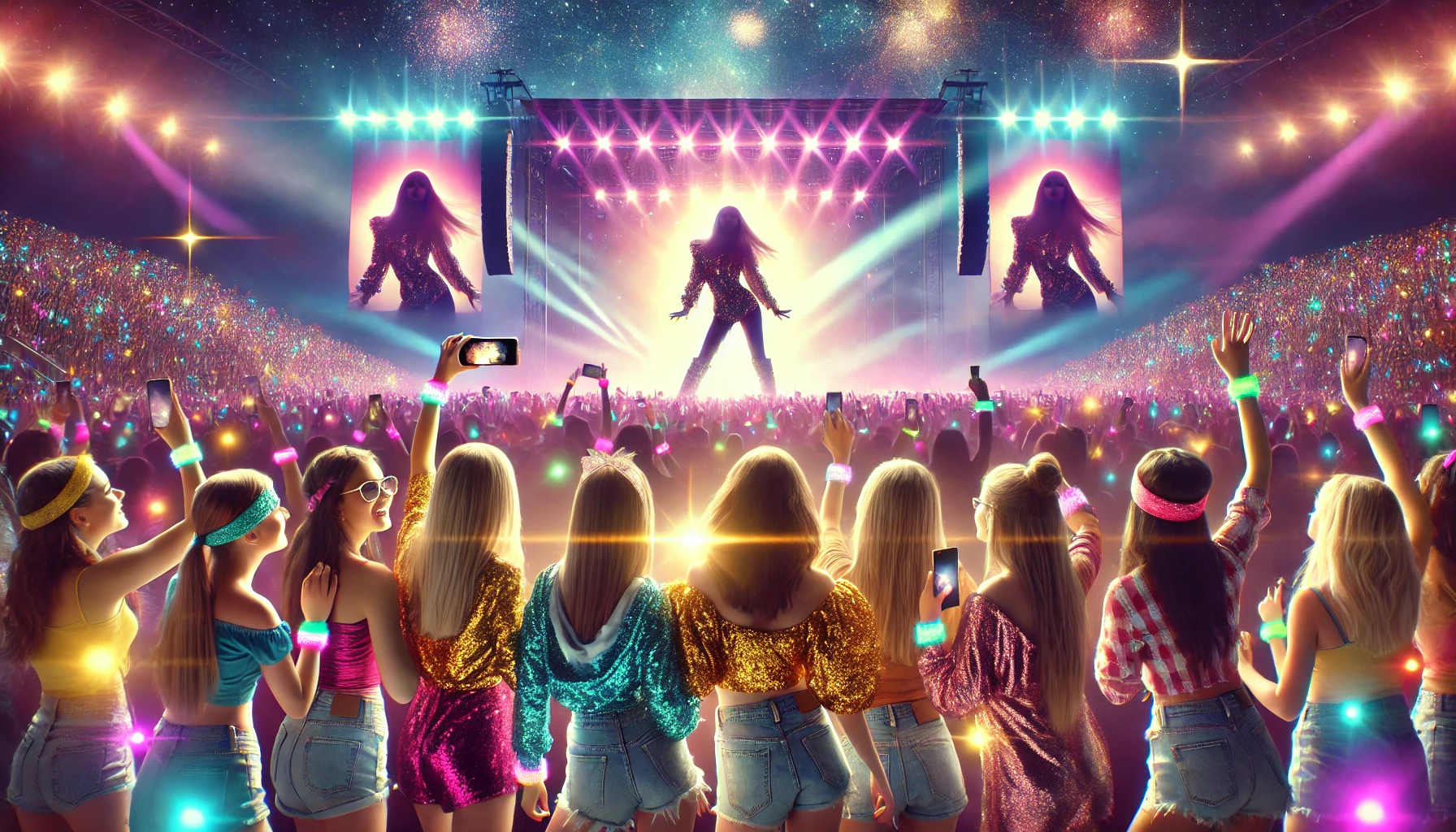
Let’s just start here: Taylor Swift isn’t just a pop star; she’s a cultural phenomenon, a human Easter egg, and—dare I say—our generation’s Shakespeare if Shakespeare wore glittery bodysuits and wrote breakup songs that slap.
Love her, hate her, or just vibe to her music ironically, you can’t escape her gravitational pull. And honestly? That tells us a lot about young women today and the vibes we’re navigating.
Why do we care about Taylor? Because she’s us—if we were global superstars who dated Jake Gyllenhaal and casually broke Ticketmaster. Taylor has spent years turning every triumph, heartbreak, and awkwardly public feud into art. She’s mastered the art of being relatable while existing in a world most of us will never touch. She writes songs that feel like texts you send your bestie at 2 a.m. after your situationship ghosted you. Exhibit A: “All Too Well (10-Minute Version).” It’s not just a song; it’s a cinematic universe of ex-related angst.)
Taylor’s appeal is that she’s both aspirational and accessible. She’s not above pettiness (hi, Reputation) or being messy (remember the Kim and Kanye debacle?), and we love her for it. Because honestly, aren’t we all a little messy?
The “Main Character Energy” Generation
Taylor’s whole deal—publicly reinventing herself over and over—is the blueprint for a generation raised on “finding your aesthetic” and posting your glow-up on Insta. She’s a case study in leaning into your “villain era” and then reclaiming your “soft girl” phase. It’s giving main character energy, and Gen Z is eating it up.
We’re the generation that knows life isn’t linear. We grew up on existential crises (thanks, climate change and late-stage capitalism), and Taylor’s arc from “country sweetheart” to “revenge queen” to “cottagecore poet” mirrors our own chaotic evolution. Her ability to be unapologetically herself while owning her mistakes (“It’s me, hi, I’m the problem, it’s me”) resonates with young women figuring out how to exist in a world that’s constantly judging them.
Taylor’s journey also taps into a new wave of feminism—one that’s deeply personal. She’s not out here delivering fiery speeches; she’s writing songs about power dynamics, emotional labor, and the cost of ambition. Songs like The Man and You’re On Your Own, Kid hit different because they articulate struggles so many young women face, whether it’s being underestimated at work or realizing the hustle won’t love you back.
Taylor’s not afraid to be vulnerable, but she’s also not afraid to be powerful. And that’s the duality young women today are embracing: crying over someone who ghosted you and knowing you’re too good for them. It’s not a contradiction; it’s the blueprint.
Swifties
Of course, there’s the fandom, which is its own phenomenon. The Swifties are like modern-day pilgrims, traveling across the country for the Eras Tour and decoding every lyric like it’s the Da Vinci Code. And say what you will about parasocial relationships, but Taylor’s connection to her fans is chef’s kiss. She doesn’t just sing for them; she sings with them.
But here’s the thing: the Taylor Swift phenomenon isn’t really about Taylor. It’s about the young women who see themselves in her music. The ones who feel deeply, love hard, and refuse to apologize for taking up space. Taylor is the soundtrack to their lives, not because she’s perfect but because she’s figuring it out—just like the rest of us.
TL;DR: Taylor Swift is the queen of “main character energy,” and her cultural appeal lies in her ability to make young women feel seen, heard, and unapologetically themselves. Also, she gave us Red (Taylor’s Version), and for that alone, we should bow down.
